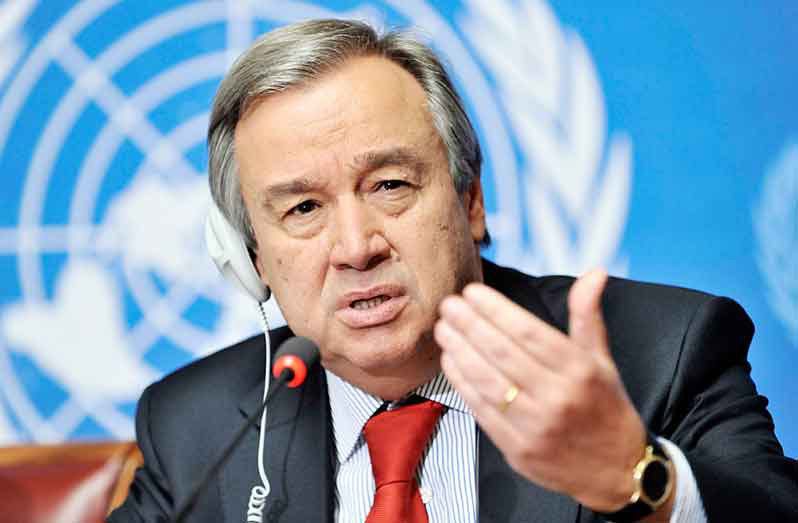UNITED Nations (UN) Secretary-General, António Guterres, on Tuesday, condemned hate speeches and the misuse of social media, which are causing notable damage to society.
“Social media platforms based on a business model that monetises outrage, anger and negativity are causing untold damage to communities and societies,” Guterres said.
He related that hate speech, misinformation, and abuse targeted especially at women and vulnerable groups, are proliferating.
“Our data is being bought and sold to influence our behavior, while spyware and surveillance are out of control, all with no regard for privacy. Artificial intelligence is compromising the integrity of information systems, the media, and indeed, democracy itself,” Guterres lamented.
The UN Secretary-General added: “Quantum computing could destroy cybersecurity and increase the risk of malfunctions to complex systems. We don’t have the beginnings of a global architecture to deal with any of these.”
There is an inherent danger that comes with social media usage without understanding the real offline implications of online actions. Every social media user ultimately becomes a publisher because they could share content publicly with multiple subscribers.
It must be acknowledged that online activism has been essential to changing many of the cultures that have made the world less safe for social groups considered marginalised.
It has been reported that it is through these media that people hear the stories of survivors of gender-based violence, learned from the communities directly about the nuances within language that needed deeper inspection and change where necessary, and also used these exchanges to mobilize for positive transformation at the ideological, institutional, interpersonal and individual levels.
Those platforms, most notably, relieve activists and advocates within those unrepresented and underrepresented social groups from having to acquire large amounts of cash for advertising through traditional publishing methods like newspapers, radio, and television.
Commentaries on social media concerning politics in Guyana, however, have produced a dark side, spewing misinformation, untruths, and propaganda targeting some individuals and events that do not see eye-to-eye with them.
On this topic, Professor Lomarsh Roopnarine wrote in one of his columns published by the Guyana Chronicle: “Unfortunately, those individuals are on a misguided mission, believing they are producing news. There is little concern for repercussions on themselves or their listeners and communities. These individuals are not concerned if their reporting would hurt their integrity or incite and eschew violence. They, of course, support their behaviour in the name of free speech, citing various constitutional rights.”
He went on to say: “That may be the case, but with freedom of speech, there is a need to draw the line between inflammatory and hate speech and constructive criticism. If not, extremism will take precedence over responsibility.”
Calling press freedom and freedom of speech “our way of life” in any democratic society, President, Dr. Irfaan Ali had highlighted the critical role that the media plays in society, particularly in Guyana, given the important development juncture that the country is at, with its burgeoning oil and gas sector.
“I believe in the full freedom of the press. I am open to constructive criticism. Freedom and press freedom… to understand what it is, is understanding our way of life, it is a culture. All of us have to have it in us to accept it as a way of life, of culture,” President Ali declared.
However, the President pointed out that as with any democratic freedoms, there must be regulations against abuses.
“When we speak of freedom, we are speaking of the ability to conduct ourselves in an open, free manner. But the ability to conduct ourselves in such a manner is within the confines of rules and the constitution that exists in a democratic society,” the President noted
He further explained this, saying: “Men and women are free, but there are limitations to which one has to exist in that free society. You are not free to harm each other, you are not free to destroy property and you are not free to destroy character. That is why there are laws; freedom exists within the confines of laws and rules in a democratic society.”




.png)









